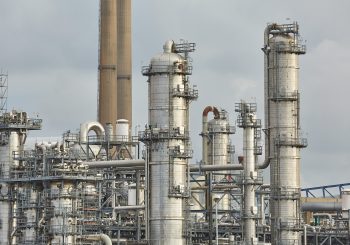Big Trucks Threaten High Way Safety
Aug 27, 2015
We all know the feeling: that uncomfortable tightening of the chest we get when we get when we look into our rearview mirror and see an 80,000 pound 18-wheeler truck barreling down on our back bumper. This feeling is not entirely irrational. According to federal statics, such trucks cause thousands of collisions each year. Given a truck’ s size and weight, common sense tells us that a collision between a big rig and a car-or even an SUV-is likely to turn out badly for the car or SUV.
In a collision between a truck and a passenger automobile, the fatalities occur in the automobile 98% of the time.
Some of the reasons are obvious: Trucks are bigger, heavier, and longer than cars; they need more room to maneuver; and they take a lot more road to come to a stop. Many collisions involving trucks are caused by the same things that cause run-of-the-mill car accidents: poorly maintained trucks, speeding, overly aggressive driving, failure to yield the right-of-way, or bad driving conditions caused by rain or snow, etc. However, there are many other causes of these collisions, causes that are very avoidable.
One of the biggest causes of crashes is excessive truck size. An 80,000-pound truck is more than twice as likely to be involved in a fatal accident as a 50,000-pound truck. Furthermore, it causes more ” wear and tear” to the roads.
Trucks are also getting longer, with the industry-standard trailer having grown from 40 feet long in the 1960s to 53 feet long today. Longer trucks mean larger blind spots, resulting in more accidents.
Additionally, many roads (including interstates) were designed when trucks were shorter, and their ramps and merge lanes were not designed to handle today’ s longer trucks. As a result, these trucks cross over into other lanes of traffic, increasing the danger of a collision.
Larger, longer, and heavier trucks require more braking time, meaning that they are more likely to be in a collision because they cannot stop. For example, a truck weighing 100,000 pounds can take up to 25% longer to stop than one weighing 80,000 pounds.
Other truck-related collisions are caused by a driver’ s inexperience in operating a particular kind or size of truck. Still other collisions are caused by tired truckers who have been on the road for too long and are fatigued, an increasing problem with the deregulation of the trucking industry, changes in the ways goods are shipped to a ” just-in-time” delivery system, and recent changes in the rules governing how long a trucker may drive before he is required to stop for a rest.
Suits involving truckers are often more difficult to prove than other kinds of collision suits, for several reasons. First, it may be difficult to find the trucker after the collision. The nature of a trucker’ s job means that he might be involved in a collision in a state far from where he lives and to which he will never return.
Trucking companies are also very skilled in defending them- selves against negligence claims (which, to them, are just a part of doing business), and they can be very aggressive in denying claims, because every dollar that they pay out in compensation to accident victims is a dollar that does not go into their pockets.
Finally, most commercial big- rig accidents involve far more par- ties than the typical fender bender (the driver, the trucking company, multiple other drivers, the shipper, the insurance adjuster, and the in- surer, just to name the most common), and the legal relationships among all of these parties can be difficult to unravel.
A person who has been involved in a collision with a trucker is entitled to recover an amount necessary to compensate him for his injuries. The complexity of these cases means that you should consult an experienced attorney and should NOT rely on the trucking company’ s insurance adjuster to look out for your interests.
Call us if you or a loved one has been involved in a big-rig collision. We will be happy to discuss the matter with you and work to get you the compensation that you de- serve.

